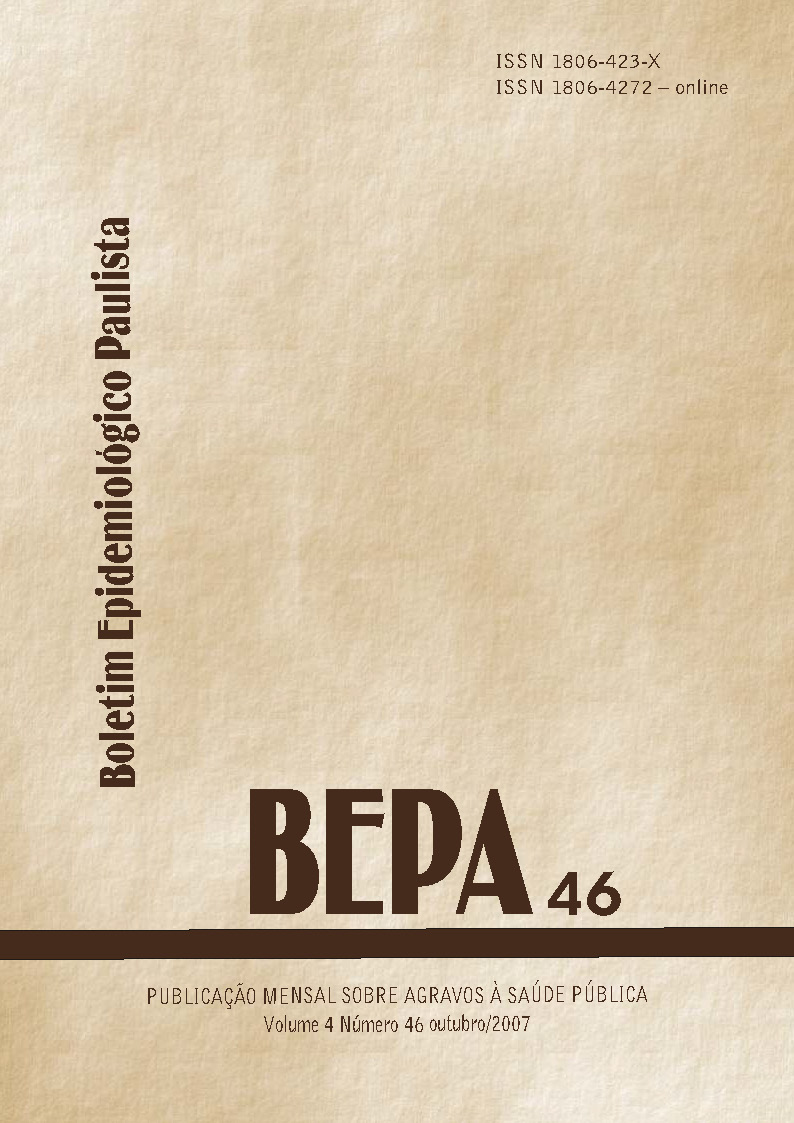Abstract
The state of São Paulo, with its 41 million inhabitants, registers circa 21.000 tuberculosis (TB) cases per year. This is the highest contingent of the country, with an incidence coefficient of 45 cases per 100.000 inhabitants, a number that has been stable for the last years. The Regional TB Plan 2006-2015, from OPAS, has been followed by the Tuberculosis Control Program of the State of São Paulo (PCT-SP), with the strengthening of the DOTS strategy, included in the strategies of STOP-TB, in partnership with WHO. One of the six additional components is to promote and to make easier operational research in TB, conceived as a tool that may contribute to the implementation/acceleration/expansion of DOTS; not only health professionals must be involved in these strategies, but they must include, as well, universities and public authorities. Analyzing the situation of operational investigations in the “Region of the Americas”, there is not a clear conscience regarding the role of investigations for effective control of TB, and they are not a priority within PCTs as well. A major part of the studies that have been performed is not issued or, once finished, the studies cannot be implemented or do not target the solution of the epidemiological and operational limitations of PCTs. In 2007, the Global Fighting AIDS, Tuberculosis and Malaria Fund Project (The Global Fund) was started, an institution directed to the support of control actions for these diseases in countries where their prevalence is highest, with proposals presented in partnership with institutions which are representative of the organized civil society and the government. This project for TB previews, in one of their objectives, to promote and to facilitate operational research. The objective of this study is to describe operational investigations performed by the PCT-SP coordination, of the DvTBC/CVE/CCD/SES-SP, during 2007.
References
São Paulo. Divisão de Tuberculose e Outras Pneumopatias. Centro de Vigilância Epidemiológica “Prof. Alexandre Vranjac”. Coordenadoria de Controle de Doenças. Secretaria de Estado da Saúde de São Paulo. Tuberculose no Estado de São Paulo: indicadores de morbimortalidade e indicadores de desempenho. BEPA 2006; 3 (suplemento 4), pp. 37.
WHO. World Health Organization. Stop TB Partnership. The Stop TB Strategy 2006-2015: building on and enhancing DOTS to meet the TB-related Millenium Development Goals. Geneva, 2006.
Opas. Pan American Health Organization. WHO. World Health Organization. Tuberculosis: Regional Plan for Tuberculosis Control, 2006-2015. Washington, DC, 2005.
Rio de Janeiro. Universidade Federal do Rio de Janeiro. Projeto ICOHRTA AIDS/TB: Curso em Pesquisas Operacionais em Tuberculose. HUCCF/UFRJ, 2006.
Rio de Janeiro. Fundação Ataulpho de Paiva. Projeto Fundo Global. Aula apresentada por M. Mandelli, durante a “I Oficina de Trabalho do Projeto Fundo Global”: São Paulo, 21 e 22 julho 2007.
Lefevre F; Lefevre AMC. Depoimentos e Discursos: uma proposta de análise em pesquisa social. Brasília: Líber Livro Editora, 2005. 97p. (Série Pesquisa v. 12).
Ribeirão Preto. Universidade São Paulo de Ribeirão Preto. Projeto ICOHRTA AIDS/TB: Abordagens qualitativas para levantamento de processos de enfrentamento à tuberculose e Aids. 2007.

This work is licensed under a Creative Commons Attribution 4.0 International License.
Copyright (c) 2007 Valdir Souza Pinto, Regiane A. Cardoso De Paula, Vera M. Neder Galesi
